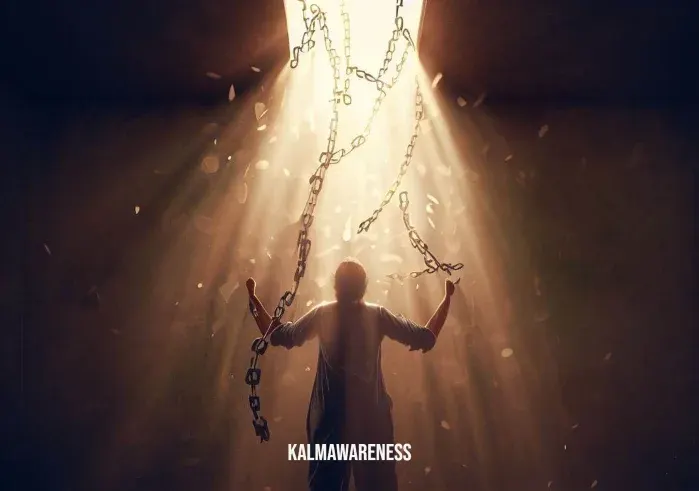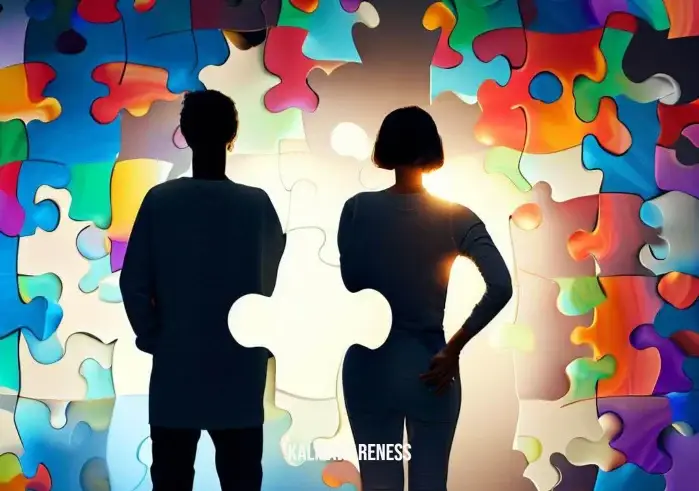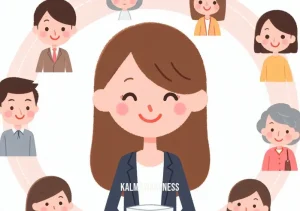Recognizing When Your Relationship No Longer Serves You: A Guide to Mindful Separation
Every relationship takes us on a journey, one filled with growth, change, and a myriad of emotions. But what happens when that relationship, the one we have invested our hearts and energy into, no longer serves us? How can we recognize the signs and navigate towards a healthier space of self-awareness and mindfulness? This is a complex topic, but let’s dive in and unravel it together.
Understanding the Change in Your Relationship
When the person you’re with starts to feel like a stranger, it can be both perplexing and disconcerting. One may wonder, “He’s not the same man I married.” Such sentiments are often the first indications that your relationship may not be serving you anymore. But it’s important to approach these feelings mindfully and not jump to conclusions.
Developing a deeper understanding of the dynamics of your relationship can reveal some profound insights. At times, we find ourselves in relationships that get intense so deep, so fast. In these instances, it’s vital to take a step back and evaluate if the relationship’s progression aligns with your personal growth and comfort.
The Role of Trust
A fundamental aspect of a healthy relationship is trust. But what happens when this trust starts to waver or becomes a point of contention? Our understanding of trust may evolve, prompting us to explore its varying forms, such as the often-debated topic of trust vs. respect.
Reassessing your trust in your partner can be likened to a trust analogy. Like a delicate glass vase, once broken, it’s challenging to restore it to its original state. This deterioration in trust may be a clear sign that your relationship is no longer serving you.
On this journey of reassessment, it’s crucial to apply mindfulness practices to maintain balance. Techniques like Anahata chakra meditation, accompanied by the healing 639 Hz frequency, can guide you through this emotionally charged process, promoting understanding and tranquility.
Mindfulness in Recognizing Relationship Changes
Practicing mindfulness is key when dealing with changes in your relationship. It’s a valuable tool to help you cope and make sense of your evolving feelings. Like the gentle shift from summer to fall, a season of mindfulness, acknowledging these changes can be a transformative experience.
Through the lens of mindfulness, you can start to view your relationship objectively. Like flipping through the pages of Judson Brewer’s books, you’ll learn to understand the craving for emotional satisfaction and how to manage these cravings in a mindful manner.
While the process may be daunting, it’s essential to let relax into this journey of self-discovery and change. It’s a process of nurturing your mindful connection with yourself and understanding the dynamics of your relationship.
Join me in the next part of this article, where we’ll delve deeper into the topic of ‘when your relationship no longer serves you’. We’ll explore the application of mindfulness in dealing with this situation and the role of self-awareness in recognizing the need for change. Your journey of growth and self-discovery continues, and I invite you to walk this path with me.

Exploring Change and Self-Awareness
Recognizing when your relationship no longer serves you is often a tough realization. However, taking a mindful approach can help you navigate this change and foster self-awareness.
Self-awareness in relationships
Self-awareness is a powerful tool for personal growth. It’s the ability to recognize our feelings, behaviors, and tendencies, and how they impact our relationships. When you practice self-awareness, you create the possibility to understand how your actions affect your relationships, giving you the opportunity to change unhealthy patterns. Here are four ways to develop self-awareness:
- Reflect on your emotions: Engage in meditation for change to introspect and understand your feelings.
- Listen to feedback: Allow yourself to learn from others’ perspectives. They might provide insights you hadn’t considered.
- Practice mindfulness: Being mindful enough to discern what’s within your control and what’s not can bring immense clarity.
- Accept your strengths and weaknesses: Embrace your qualities, both positive and negative. This acceptance is a key part of mindful evolutions.
Practicing these steps can assist you in acknowledging when a relationship no longer serves your best interests.
The Role of Mindful Conversations
Communication is a critical aspect of any relationship. However, not all conversations are equal. There’s a distinctive difference between having a conversation and having a mindful conversation. The latter involves attentively listening, empathizing, and responding without judgment.
Here’s how you can initiate and maintain mindful conversations:
- Be present: Make sure you are wholly there during the conversation. Distractions can lead to miscommunication or misunderstanding.
- Active Listening: Listen to understand, not to respond. This involves being aware of both verbal and non-verbal cues.
- Open-ended questions: Use these to delve deeper into topics, allowing for a more meaningful conversation.
- Mindful responses: Respond with understanding and without judgement, even when you disagree.
As we cultivate these mindful conversations, we build stronger, more understanding relationships. However, if despite these efforts, your relationship feels draining or unsatisfying, it may be a sign that it no longer serves you.
The Role of Energetic Cords
In the realm of energy and spirituality, our relationships form energy cords that link us to others. These cords can transmit energy, feelings, and even thoughts. It’s crucial to consider these ties when you feel that your relationship no longer serves you.
Table: Understanding Different Types of Energetic Cords
| Type of Cord | Description |
|---|---|
| Emotional cords | These cords transmit feelings between two people and can lead to emotional imbalance if the connection is unhealthy. |
| Energetic cords | These cords transmit energy. In a relationship that no longer serves you, these cords can drain your energy. |
| Energy cords between lovers | These powerful cords can carry strong emotions, physical sensations, and deep soul connections. Recognizing when these cords are causing more harm than good is crucial. |
In the next part of this article, we will delve deeper into how practices such as meditation and mindfulness can aid in understanding and dealing with the realization that a relationship no longer serves you. Stay tuned.

Embracing Change and Releasing Attachments
When a relationship no longer serves you, embracing change and releasing attachments becomes crucial. However, understanding the process of letting go and moving forward can be complex.
Moving through Change
Albert Einstein famously said, “Insanity is doing the same thing over and over again and expecting different results.” When your relationship no longer serves you, the first step is acknowledging that change is necessary. Change can be unsettling, but it’s an essential part of personal growth and self-awareness.
Consider the natural rhythm of life; the changing seasons remind us that change is inevitable and often necessary. As discussed in the fall is the season of mindfulness article, each season brings its unique lessons and transformations. Just like in nature, our lives and relationships go through seasons of growth, stagnation, and renewal.
The Mindful Approach to Change
The ability to observe without judgment, a core aspect of mindfulness, is a powerful tool when managing change. This approach emphasizes accepting the present moment as it is, even when it’s uncomfortable. In the words of Jon Kabat-Zinn, “You can’t stop the waves, but you can learn to surf.”
Practicing mindfulness can help create a healthy detachment, allowing you to see the situation clearly. The mindful mind focuses on acceptance, compassion, and non-judgment. These attributes can provide clarity and strength when navigating the rough seas of relationship changes.
Letting go of Attachments
Buddhist philosophy places a strong emphasis on the impermanence of all things and encourages non-attachment. According to this philosophy, clinging to people, feelings, or ideas can cause suffering. Thich Nhat Hanh, a renowned Buddhist monk, wrote, “You must love in such a way that the person you love feels free.” When a relationship no longer serves you, releasing the attachment can lead to liberation and personal growth.
In relationships, energetic ties or energy cords can create strong attachments. Recognizing and releasing these cords, whether they’re emotional, energetic, or between lovers, can be a vital step in letting go.
Encouraging Self-Love
Finally, remember that ending a relationship that no longer serves you isn’t an act of selfishness—it’s an act of self-love. As Oscar Wilde aptly said, “To love oneself is the beginning of a lifelong romance.” Nurturing self-love can help you recognize your worth and make decisions that serve your well-being, such as choosing to leave a relationship that’s no longer beneficial.
In the next part of this article, we will further explore the role of mindfulness practices, such as meditation and yoga, in managing the transition when a relationship no longer serves you. Stay tuned.

Incorporating Mindfulness Practices into the Transition
When your relationship no longer serves you, mindfulness practices like meditation and yoga can offer emotional and spiritual sustenance to navigate this turbulent period. This chapter explores how these techniques can provide hope, confidence, and stability during times of change.
Meditation for Change
Meditation, a cornerstone of mindfulness, encourages a calm, non-judgmental awareness of the present moment. This practice offers a pathway to inner peace and acceptance. Mindfulness author, Jon Kabat-Zinn, beautifully encapsulates the essence of meditation, stating, “Meditation is the only intentional, systematic human activity which at bottom is about not trying to improve yourself or get anywhere else, but simply to realize where you already are.”
In the context of relationship changes, meditation for change can provide a platform for healing and self-discovery. It promotes acceptance of the current situation, making it easier to let go and move forward.
The Power of Yoga
Yoga goes beyond physical postures; it’s a practice that integrates mind, body, and spirit. The term ‘yoga’ comes from the Sanskrit word ‘yuj’, which means ‘to unite’. In essence, yoga fosters a deep connection with oneself, enhancing self-awareness and fostering personal growth.
Anahata or the heart chakra, in particular, is linked with compassion, love, and acceptance. Engaging in anahata chakra meditation or yoga practices aimed at balancing this chakra can prove therapeutic when your relationship no longer serves you.
| Mindfulness Practices | Benefits |
|---|---|
| Meditation | Encourages self-awareness, acceptance, and inner peace |
| Yoga | Promotes a deep connection with oneself, enhances self-awareness, and fosters personal growth |
| Anahata Chakra Meditation | Balances the heart chakra, enhancing compassion, love, and acceptance |
Harnessing the Power of Frequency
Sound has profound healing potential. Specific frequencies, like the 639 Hz frequency, are believed to promote connection and harmony, making them particularly beneficial during transitions.
Harnessing the Power of Love
When your relationship no longer serves you, reconnecting with love—both for yourself and others—can be an empowering experience. Whether it’s through an attract love meditation or understanding the Buddhist views on love, harnessing the power of love can provide hope and confidence.
As the renowned Lebanese poet Kahlil Gibran expressed, “Love one another, but make not a bond of love: Let it rather be a moving sea between the shores of your souls.”
In the final chapter of this article, we will explore the journey of self-discovery and growth that unfolds when you choose to leave a relationship that no longer serves you. Join us as we delve deeper into the aspects of self-identity, personal boundaries, and self-expression.

Embracing the Journey of Self-Discovery
When your relationship no longer serves you, the journey of self-discovery unfolds. This final chapter will guide you through the process of self-identity, personal boundaries, and self-expression, providing an opportunity for growth and transformation.
The Art of Self-Identity
When a relationship that once felt right no longer serves you, it can leave you questioning your self-identity. The relationship might have defined a part of who you are, and now that it’s ending, it’s natural to feel uncertain about your identity.
Renowned mindfulness and social work expert, Mirabai Bush, encourages embracing such times as an opportunity to explore the self in a new light. “Mindfulness in social work can help individuals redefine their sense of self post break-up”, says Bush.
Establishing Personal Boundaries
It’s imperative to establish personal boundaries when a relationship no longer serves you. These boundaries can guide your interaction with your ex-partner and protect your emotional well-being.
Boundaries aren’t restrictions but essential guidelines for self-respect and integrity. A mindful mindset can help you identify your boundaries and enforce them effectively.
Self-Expression and Authenticity
When a relationship ends, you are handed a blank canvas to express your authentic self. Embrace this as a chance to pursue interests that you may have sidelined during your relationship.
Engaging in mindful participation in activities that bring joy can foster a sense of fulfillment and happiness. Remember, every experience contributes to your journey of self-discovery, ultimately revealing who you truly are.
The Journey is the Destination
Embracing the journey of self-discovery when your relationship no longer serves you can be daunting yet liberating. As the saying goes, “Life is a journey, not a destination”. This period of change can be seen as an invitation to redefine your path. As you traverse this path, remember to ride the wave of change with resilience and grace.
As we conclude this comprehensive guide, we invite you to embark on the journey of self-discovery and growth with courage and an open heart. Remember, when your relationship no longer serves you, it is not the end but a new beginning. Let this experience pave the way for personal growth, deeper self-understanding, and enhanced self-love.





